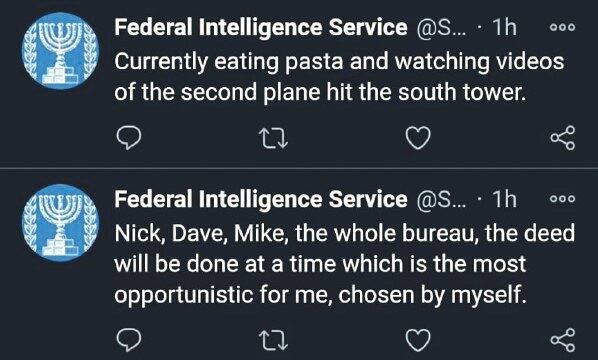Khaled Miah told a federal judge Tuesday that when he directed online threats of violence at the FBI agents investigating him, it was out of frustration and anger.
“I wanted them to feel the same sense of being under a microscope that they made me feel,” he said. “I only wanted them to feel insulted and under scrutiny. I never had the intention to cause any harm or violence.”
But the jury that heard the case against Miah found him guilty of five counts of interstate threats, influencing or retaliating against a federal officer by threat and altering or deleting records in a federal investigation.
On Tuesday, Miah, of Etna, was sentenced by U.S. District Judge W. Scott Hardy to serve six years in federal prison to be followed by three years of supervised release.
The judge sentenced Miah slightly below the recommended advisory guidelines of 78 to 97 months in prison based on Miah’s mental health conditions, which include a diagnosis of psychosis.
According to evidence at trial, Miah directed threats toward several FBI agents who had been investigating his online conduct in September 2020. Assistant U.S. Attorney Jessica Smolar said Miah did extensive online research about the agents and their families, their pets and even traveled to the areas where they lived.
In one tweet, he addressed the agents directly, “Nick, Dave, Mike, the whole bureau, the deed will be done at a time which is the most opportunistic for me, chosen by myself.”
He also tweeted the coordinates for FBI headquarters in Washington and wrote “the zero hour is approaching.”
At trial, Miah’s defense attorneys told the jury that their client was expressing free speech rights and just trolling the agents online — mocking them.
At sentencing, Charles Swift, Miah’s attorney, argued that his client took no overt acts to follow through on any of the threats.
“In a threats case, there’s always going to be thinking about it — that’s the very nature of a threats case,” Swift said. “What we have at most is somebody’s thinking about something.”
Smolar told the court that Miah is a danger to the community and to law enforcement, and he had a “chilling interest in weapons and fascination with violence.”
She said that investigators found dozens of videos of beheadings on his electronic devices, Facebook posts that declared raping women to be acceptable and hateful language about Jewish people.
“It was not haphazard and random, “she said. “The only way to protect against that danger is to keep him in prison as long as we can.”
Smolar argued that Miah should receive a sentencing enhancement for taking steps to carry out the online threats.
“It wasn’t just the defendant was thinking about it,” she said, noting that he made overt acts such as researching the agents and their families, researching explosions and going to a shooting range.
“All of these things taken together are calculated,” Smolar said. “There are plenty of overt acts in this case.”
Hardy agreed, saying that the actions Miah took demonstrated intent.
The judge said that Miah threatened “the very people who sacrifice their own lives … to keep you safe, to keep your family safe, to keep our community safe.
“They’re public servants,” the judge said. “They were just doing their job.”
In his statement to the court, Miah, who was born in Bangladesh and came to the United States with his family in 2003, said how deeply affected he was by his father’s sudden death in 2010.
The Muslim community rallied around his family at the time, Miah said. But then, a few months later, he said the FBI arrived at his home to question his brother about a member of that community.
“That event left an impression on me — a negative and intimidating image of the FBI,” he said.
Miah said the community sympathized with the agents. That reaction, he said, caused him to despise his Muslim community.
It was then that Miah said he started sharing images of violence on social media and “daring my community to turn me in.”
“I want to apologize to the Muslim community here in Pittsburgh for my actions toward them,” Miah said. “I gave the FBI a reason to investigate me.”
Miah also apologized to the agents he wrote about.
“I feel terrible knowing now how you guys interpreted my words and actions,” he said.
Miah said he had always lived his life with a sense of purpose and believed he was special.
Now, he said, “There is nothing special about me. The inner me is truly the enemy.”
Almost 30, he said, “I have nothing to my name but a trail of regrets.”
Since his incarceration, Miah said he has reconnected with his family and pledged to continue that relationship.
He also said that the medications he takes have helped him with his mental illness, and that the paranoia and impulsivity he used to feel have gone away.
“This is not the end of my story but the beginning of a new chapter,” he said.













